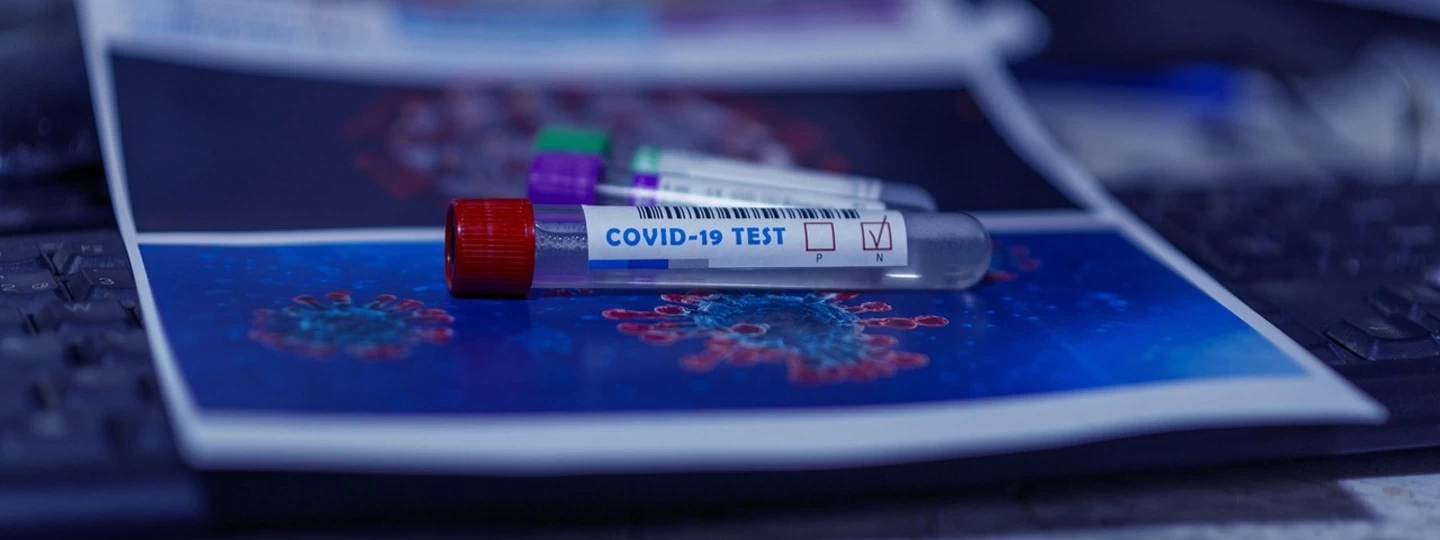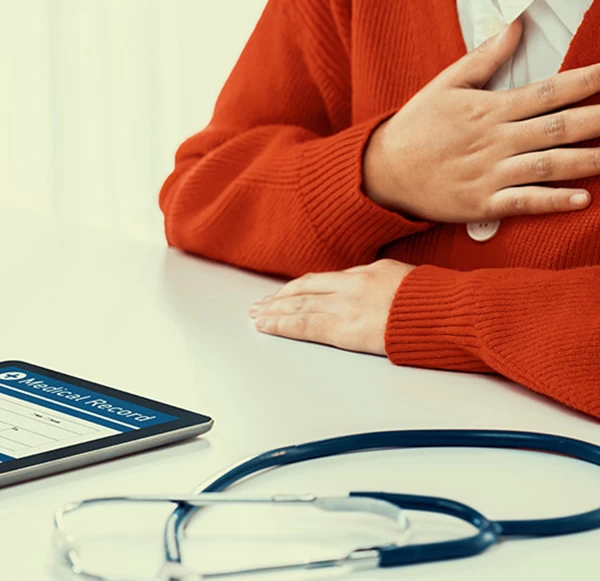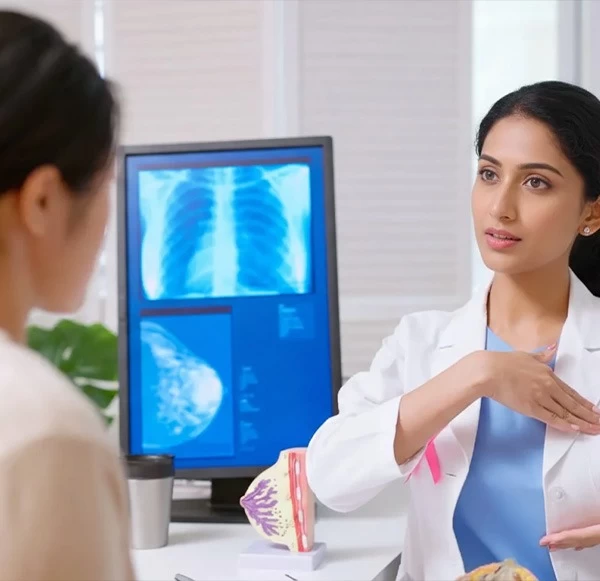- Email Us

Just when we thought COVID-19 had taken a backseat, the virus is once again making headlines. Across parts of India, there's a steady rise in COVID-19 cases, reminding us that the pandemic isn't entirely behind us. With over 1,000 active cases now reported nationwide, health experts are turning their attention to a new set of variants that could shape athe course of this resurgence.
Leading
the charge are the emerging Omicron sub-variants NB.1.8.1, LF.7, and JN.1,
identified through genomic surveillance as key drivers of this latest spike.
These fast-spreading strains are particularly active in urban hotspots like
Karnataka, Maharashtra, Delhi, and Kerala.
Adding to
the concern is the JN.1 variant, a descendant of the BA.2.86 (Pirola)
lineage. Now classified as a Variant of Interest (VOI) by the World
Health Organization (WHO), JN.1 carries a high number of mutations in
the spike protein, potentially allowing it to bypass immunity from
past infections or vaccinations.
As these
new variants emerge, so does the need for increased awareness and reliable
diagnostic testing. Here’s what you should know—and how Mahajan Imaging
& Labs can help keep you and your loved ones protected.
When
Should You Get Tested for COVID-19? Key Situations You Shouldn’t Ignore
As new COVID-19
variants like NB.1.8.1,
LF.7, and JN.1 continue to circulate, timely testing remains
one of the most effective ways to protect yourself and your family:
· Following close contact with a
person who is positive for COVID: Even if you feel fine, you should get tested after
3–5 days of coming into touch with someone who tested positive, whether that
person was at work, at home, or in your social circle.
· Prior to or following travel: Are you going on a trip or
coming back from one? Especially in places with a lot of traffic, like airports
and public transportation, testing helps make sure you're not unintentionally
spreading the infection.
· If one is in a group at high risk: Tests should be performed as a
normal precaution or at the first indication of exposure in older adults,
people with chronic illnesses, and people with compromised immune systems.
· If suggested by a Medical
Professional: Follow your doctor's advice, particularly if you're ill or intend to be
around people who are vulnerable.
Symptoms of Emerging COVID-19 Variants:
What to Know About JN.1, NB.1.8.1, and LF.7
Early detection of symptoms is
more crucial than ever as novel COVID-19 variants like JN.1, NB.1.8.1, and LF.7
continue to spread throughout regions of India. Despite their great
transmissibility, these Omicron sub-variants typically cause mild to moderate
disease, frequently imitating the flu or a seasonal cold.
· Fever: A fever is usually light and
passes quickly.
· Congested and runny nose: This is similar to the signs of
a normal cold
· Sore throat: A frequent symptom of the initial
one
· Cough: It can be dry or produce a small
amount of phlegm
· Muscle or body aches: Although they are not usually
present, some people may experience them
· Fatigue: A general feeling of exhaustion
or low vitality
· Gastrointestinal symptoms: Getting diarrhea or nausea
· Headache: Mild to moderate headaches are
possible
JN.1 COVID Variant: Essential Diagnostic Test You Should
Know About
As
the JN.1 variant weaves its way through communities, it often arrives masked in
mild, misleading symptoms—making early detection all the more crucial. What may
feel like a routine sore throat or fatigue could, in fact, could signal
something more. Through these
diagnostic tests, individuals can quickly determine whether they are
COVID-positive, allowing for timely care and responsible precautions:
· RT-PCR: The most popular and accurate
test is reverse transcription polymerase chain reaction, or RT-PCR. It can
identify the virus even in the early stages of infection and entails drawing a
swab sample from the throat or nose.
· Rapid antigen tests: These tests yield answers more
quickly than RT-PCR assays, however they are typically less sensitive. They are
helpful in instances where quick findings are needed and for mass screening.
This silent version serves as a
reminder that being vigilant remains our best line of defense in a world that
is becoming weary of COVID-19 alerts.
What makes JN.1 so contagious? What about its
mutations?
Due to its ease of transmission,
Omicron first became an epidemic before becoming endemic and displacing all
previous forms. The same is true of JN.1, which emerged as the sole surviving
Omicron strain. Because it affects the upper respiratory tract (nose, throat),
it is more infectious than earlier versions. Droplets of oral secretions have a
high viral load, which spreads the virus even further. More people become
infected when the virus spreads by aerosols, which are tiny solid particles and
droplets in the air. The genes of JN.1 mutations differ slightly, but their
characteristics are the same. The virus is essentially the same.
Safety protocols we follow at Mahajan Imaging and Labs:
At Mahajan Imaging & Labs, your safety
is our top priority. We follow strict infection control protocols to ensure
every COVID-19 test is conducted in a clean, hygienic, and low-risk
environment. Here’s how we protect you during the testing process:
· Fully Protected Medical Staff: During all testing processes, whether at our facilities or during home visits, our technicians are outfitted with lab coats or personal protective equipment (PPE) suits, gloves, and face masks. This reduces the possibility of transmission and guarantees your protection all along the way
Rigorous
Sterilization Protocols: All sample collection tools and
testing equipment are single use for patients. Testing locations and
high-touch surfaces are routinely cleansed and disinfected using medical-grade
chemicals.
Controlled & Contact-Minimized
Environment: We ensure social distancing,
minimal patient overlap, and fast, contactless service—right from registration
to report delivery. Carried out by trained, vaccinated professionals following
full safety guidelines.
Conclusion:
Don't wait for
symptoms to worsen or risk unknowingly spreading the virus. Book
your COVID-19 test today with Mahajan Imaging & Labs.
Frequently
Asked Questions:
Q.
Are these new variants more dangerous?
Ans: Even though the present variations seem to cause milder symptoms in most
cases, they can spread swiftly through communities and cause serious sickness
in high-risk individuals. Early detection and testing are still crucial.
Q. Can I
get tested without symptoms?
Ans: Indeed. A
lot of people choose to get tested as a precaution before traveling, going to
events, or seeing family members who are at risk. Even if you have no symptoms,
you can still schedule a test.
Q. How do
I get a COVID testing booked with Mahajan Imaging & Labs?
Ans: You
can book your test with us through our website, WhatsApp, or by calling our
customer care. For quick and easy booking, you can chat with us on WhatsApp at +91 88828 97661 or
speak directly to our
support team at +91 11 4118 3838. We offer both in-center
testing and home sample collection, ensuring flexibility and convenience based
on your preference.




